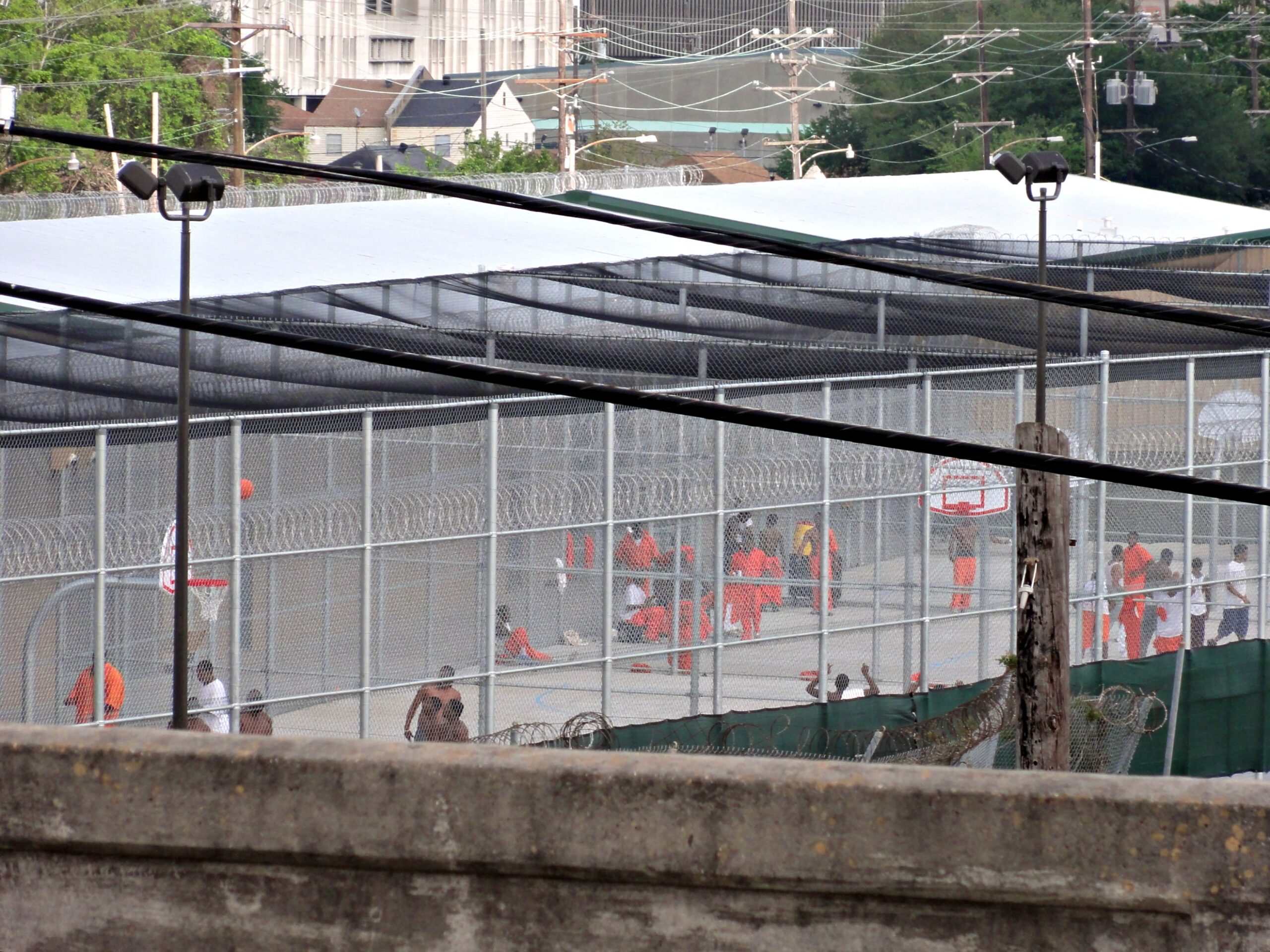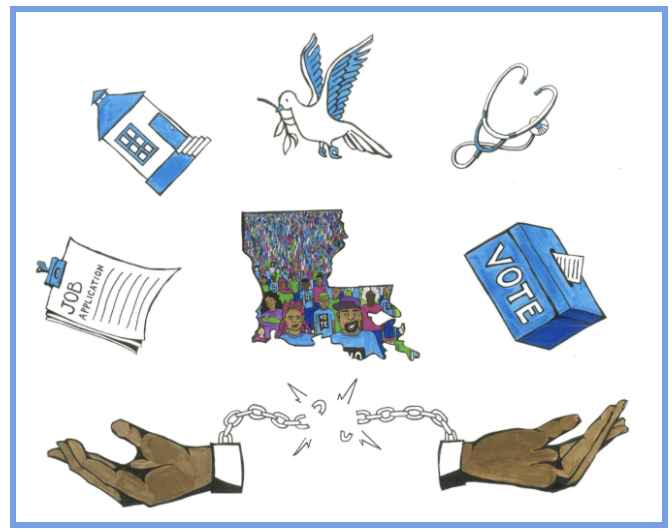Here in New Orleans, where black men are 50% more likely to be arrested than white men, black women at 55%. The incarcerated population in Louisiana is 68.2% black. Louisiana ranks among the worst states in the nation in mass incarceration rates, illustrating the state’s struggle to drop institutionally racist policies.
As evident with this year’s election, voting is so important to the democracy of this nation, and issues surrounding voting are all too related to incarceration. In 11 states, felons lose their right to vote indefinitely. In 19, they lose the right to vote during incarceration and during a time thereafter. That’s 30 states right there. There is a clear disenfranchisement of the black vote caused by mass incarceration, where prison populations are disproportionality black, and black communities are losing their right to vote. Many argue that mass incarceration is being used like civil rights era voting laws, like the grandfather clause or literacy tests, which have historically stopped black people from voting. Research shows, losing the right to vote reduces one’s social capital, leaving a major distrust between black communities and the federal government. In an interview conducted with a formerly incarcerated man currently living in New Orleans, he notes that among incarcerated populations, the belief that voting does not matter is quite common, and the desire to vote must come from the ‘Homefront’, where we are influenced by the voting trends of our parents and friends.

Orleans Parish Prison
Losing the right to vote makes it that much harder to reenter society, where formerly incarcerated persons are reentering with less democratic rights than they had before, potentially diminishing ideas of self-righteousness. Reentry, as many already know, is extremely stigmatized. It is harder for those with a criminal history to get a job, find housing, and maintain relationships with friends or family after they are released. More infrastructure needs to be put into reentry aid, and into the communities with the highest rates of incarceration.
COVID has made it harder than ever to successfully ‘reenter’, as well as the ‘digital transition’ that has occurred because of it. Inmates often lack digital literacy, and this obstacle stands in the way of countless opportunities once released, like employment. Overall, digital literacy is not a barrier that formerly incarcerated black people should have to overcome, and restrictions on Internet and computer use in prisons need to be lifted.
Here in New Orleans, an organization called VOTE works to support those reentering and advocates for their success in finding a job, housing, medical care and overall wellbeing. VOTE encompasses many of the ideas previously expressed in this article, and represents a local fight to end mass incarceration. Hopefully, organizations like VOTE can pave the way to end mass incarceration, ensuring the stability of the black vote in the US, and more importantly the unfair treatment of black Americans.

Voice of the Experienced Artwork (Photo by: VOTE)
If anyone you know has been recently released from prison or jail, be sure to support that person in their reentry struggles. Formerly incarcerated people face among the toughest barriers to overcome in society today, and deserve to be treated with this in mind. If we all treat this population with love, support, open minds, and empathy, the stigmas associated with incarceration will soon disappear. Next time you go out and vote, remember how this makes you feel, and remember the number of black Americans that can no longer receive this same feeling.
You can find more information on VOTE here: https://www.vote-nola.org/
 NOLAbeings
Multimedia artist Claire Bangser created NOLAbeings as a portrait-based story project that marries...
NOLAbeings
Multimedia artist Claire Bangser created NOLAbeings as a portrait-based story project that marries...
 Data corner: Adobe Suite (create a PDF, social media graphic, presentation, edit a photo and video
Data corner is where you go to work with analytics and top tech skills. It takes on everything from PERL and SQL to Canva and Sprout Social.
Data corner: Adobe Suite (create a PDF, social media graphic, presentation, edit a photo and video
Data corner is where you go to work with analytics and top tech skills. It takes on everything from PERL and SQL to Canva and Sprout Social.
